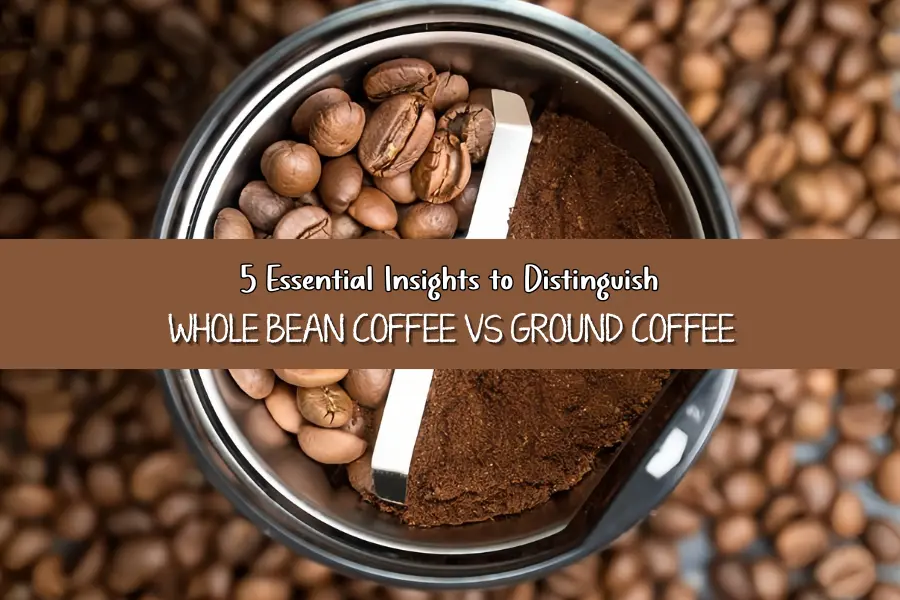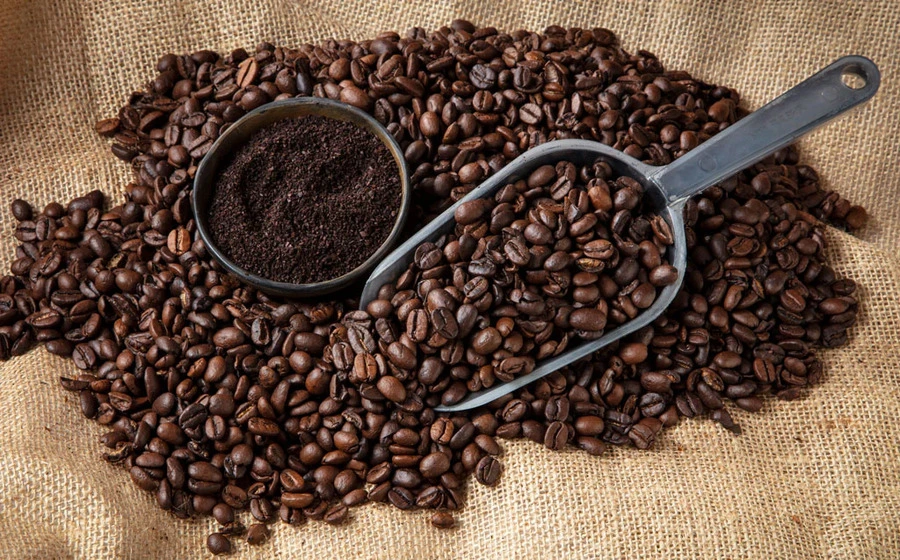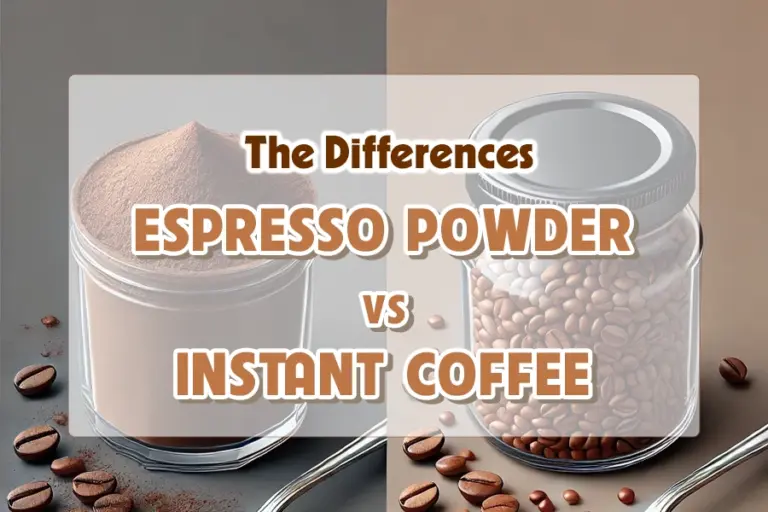5 Insights to Distinguish Whole Bean Coffee Vs Ground Coffee

The choice between whole bean and ground coffee is about flavor and the overall coffee experience, not just a manual habit. Are you drawn to the robust aroma which whole beans offer, or do you prefer the convenience brought by ground coffee?
By the end of this article, you will gain insight when comparing whole bean coffee vs ground coffee.
What Is Whole Bean Coffee?
Like its sound, whole bean coffee is roasted coffee beans forming fully. It seems hard for us to make coffee with this type of coffee beans because we have to use a grinder to brew a fresh pot of coffee. On the other hand, purchasing whole-bean coffee helps customers easily grind the beans to their favorite specifications. It means people can adjust the size of their coffee grounds to match their favorite brewing method.
Advantages of Using Whole Bean Coffee
If you own a coffee grinder, whole-bean coffee is the go-to option. Not only does it contain enhanced freshness, flavor, and aroma but it also offers greater versatility, longer shelf life, and better consistency compared to pre-ground coffee. Here’s why:
- Preserve freshness and rich flavor: With essential oils and natural compounds contributing to flavor and aroma, whole beans allow you to fully enjoy the fresh and rich flavors of traditional coffee.
- Control over coffee grind size: When using whole beans, you are in line for adjusting the grind size to adapt various brewing methods, from drip coffee to espresso.
- Enchanting coffee brewing experience: There is no doubt about the feeling of being a professional barista when you grind and brew coffee. This process is not just about making a drink, it’s an art form where you can savor each step, from selecting the beans to grinding and brewing.

What Is Ground Coffee?
Ground coffee refers to roasted coffee beans that have been ground into small particles for coffee. There are many ways to brew coffee, but each method requires ground coffee beans and water.
Unlike whole bean coffee in full form, ground coffee is ground into small particles. Thus, baristas can easily take advantage of them to make various brewing methods including drip coffee makers, French presses, and espresso machines. There are many grind sizes for coffee drinkers to choose from, depending on the flavor and strength of the coffee.
Advantages of Using Ground Coffee
When it comes to brewing coffee, coffee enthusiasts can choose between whole-bean coffee and ground coffee. However, for many, whole-bean coffee has become the secret to unlocking the full potential of this beloved beverage. Let’s take a look at why:
- Freshness: One of the greatest benefits of whole-bean coffee is its freshness. The key to keeping whole coffee beans fresh for a longer time lies in how long to grind coffee beans. This is entirely different from pre-ground coffee.
- Flavor and Aroma: Whole bean coffee is packed with more flavor and aroma than ground coffee. Grinding immediately before brewing coffee releases essential oils that contribute to the richness of your drink.
- The versatility of grinding: Whole bean coffee provides amazing flexibility. You can grind it in various ways to suit different brewing techniques for optimal extraction. By having control over the grind size, you can achieve a flavorful cup of coffee, whether you’re using a French press, pour-over, or espresso machine.
- Longevity: Whole bean coffee can last up to nearly a year if stored properly. Ground coffee, on the other hand, has a shorter shelf life and typically lasts only a few weeks under the same situations.
- Consistency: When you grind the beans yourself, you have control over the consistency of the grind, ensuring a more uniform extraction and a better-tasting cup every time.

How To Distinguish Whole Bean Coffee VS Ground Coffee
When you’re confronted with choices between whole bean coffee and ground coffee, it’s essential to understand which option best suits your personal taste. That way, you won’t end up wasting money on unhappy coffee experiences. To decide whether to buy whole beans or ground coffee, here are 4 main factors you can consider: Price, Expiration, Accessibility, and Flavor.
Price
Thanks to its high standard of quality, whole bean coffee typically comes with a higher price compared to ground coffee. As such, if you have a limited budget, ground coffee might align better with your requirements.
On the contrary, whole-bean coffee will be the best bet if you’re ready to invest a bit extra for a more flavorful experience, especially when comparing espresso beans vs coffee beans. A good investment in premium quality equipment and ingredients will help you enjoy robust flavors in every cup.
Expiration
Coffee grounds lose their freshness much more quickly than whole beans. When the beans remain intact, they are better protected from the external elements. However, once ground, the beans begin to undergo chemical changes due to exposure to oxygen, moisture, and carbon dioxide.
Ease and accessibility
One of the key advantages of whole beans is their adaptability. With ground beans, you are capable of controlling the size of your grind which matches perfectly with different brewing methods and machines. The finer your beans are ground, the more surface area will be exposed.
Flavor
There is no denying that whole-bean coffees are far superior. One of the best ways to entirely revel in a fresh and flavorsome cup is to buy coffee beans whole, and then grind them right before brewing them.
Coffee experts agree that when choosing coffee beans, the former provides a richer flavor experience compared to the latter. It is because ground ones gradually lose their original taste and aroma when they wait to be brewed.
Comparison Table: Whole Bean Coffee vs Ground Coffee
| Whole Bean Coffee | Ground Coffee | |
| Price | Higher, due to its superior quality. Ideal for those willing to invest for a richer flavor experience. | Lower, more suitable for those with a limited budget. |
| Expiration | Stays fresh longer because whole beans are better protected from external elements. | Loses freshness more quickly due to exposure to oxygen, moisture, and carbon dioxide after grinding. |
| Accessibility | Flexible, allowing you to adjust grind size to suit various brewing methods and machines. | Ready to use, saving time but lacks customization in grind size. |
| Flavor | Offers richer and more robust flavors when ground just before brewing. | Gradually loses its original taste and aroma over time as it waits to be brewed. |
Which Suits Your Needs?
In the matter of distinguishing whole bean coffee vs ground coffee, there are some key insights you should keep in mind. Among the four categories we discussed, whole-bean coffee stands out for its longevity and flavor, while ground coffee offers greater cost efficiency and convenience.
With an equal split, it’s clear that both forms of coffee showcase their strengths. The good news is that there’s no right or wrong way to enjoy coffee. One of the best ways to determine whether you prefer ground coffee or grinding your own whole beans is to try both and see for yourself.

Feel free to choose ground coffee beans if you like:
- A quick routine of making coffee in the morning to be awake as soon as possible.
- A money-saving way to enjoy freshly brewed coffee at home.
Besides, you might opt for whole-bean coffee if you prefer:
- A more superior coffee flavor that includes the nuances of the bean’s origin and roast.
- A coffee experience designed for true connoisseurs.
Wrapping Up
Hopefully, our article can help settle your internal debate on whole bean coffee vs ground coffee. Whether you decide to prioritize the quality of whole beans, choose the convenience of coffee grounds, or experiment with a little bit of both.




